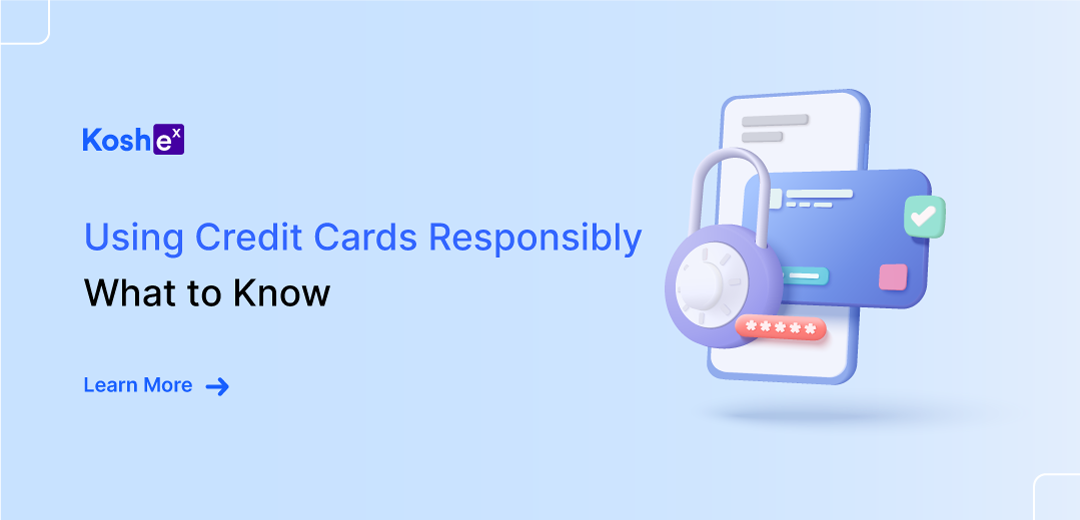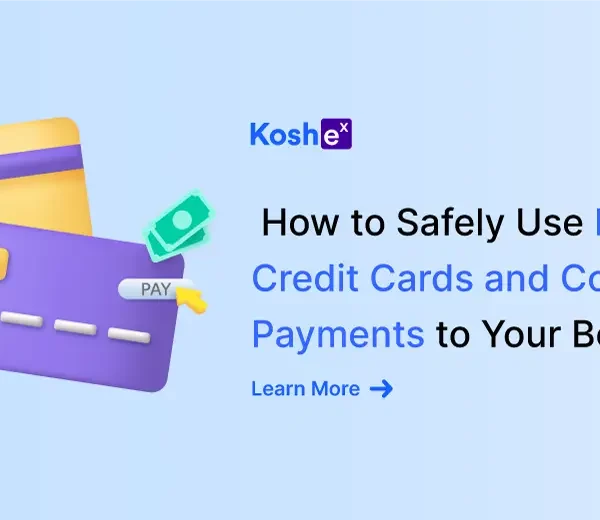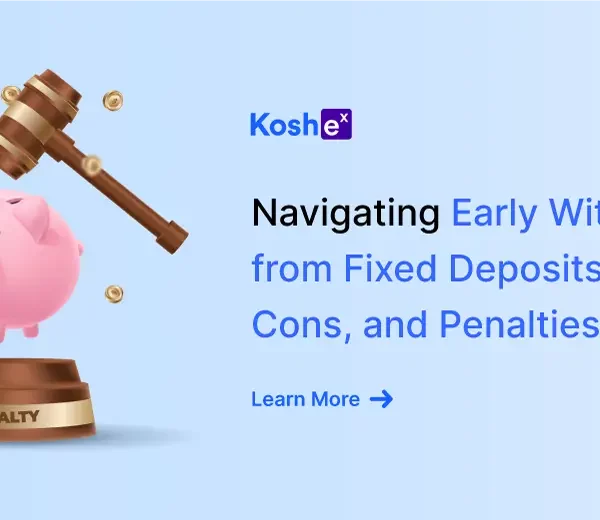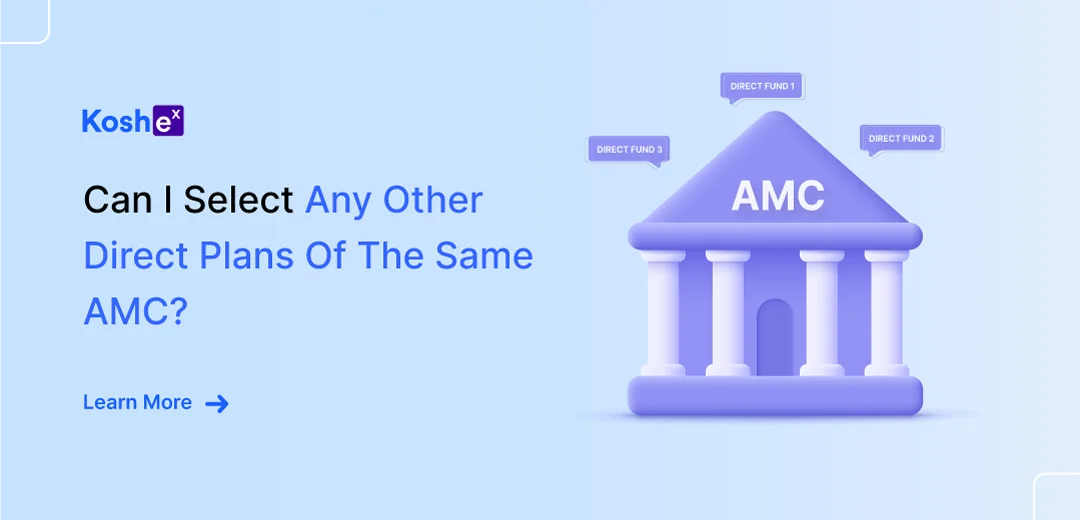Using credit cards responsibly is essential for maintaining financial well-being In today’s world, credit cards have become an essential financial tool, offering convenience, rewards, and opportunities to build a solid credit history. However, it is crucial to approach credit cards with knowledge and responsibility to avoid falling into the common pitfall of a debt trap.
In this comprehensive article, we will explore proven strategies for using a credit card wisely. Whether you are a seasoned credit card user or just starting, these insights will empower you to make informed financial decisions. From understanding credit scores to harnessing the power of rewards programs, we have you covered.
Are you ready to take charge of your financial future and unlock the true potential of your wealth? Look no further than Koshex. It offers hyper-personalized insights and seamless transactions, helping you create and grow wealth effortlessly. Sign up with Koshex today!
Strategies for Using a Credit Card
Using a credit card wisely offers convenience, security, and the opportunity to build a positive credit history. However, without proper planning and responsible management, credit card usage can lead to debt and financial difficulties.
To optimize the benefits of your credit card while avoiding potential pitfalls, implementing the following strategies is highly advantageous:
Establish a Budget
Establishing a budget is a fundamental step in financial management, providing a solid foundation for responsible credit card usage. Gaining a thorough understanding of your income, expenses, and financial objectives is crucial. By developing a comprehensive budget, you can establish clear spending limits for different categories such as groceries, transportation, and entertainment.
It empowers you to track your expenses effectively and prevent overspending, ultimately helping you make the most of your credit card.
By mapping out your income and categorizing your expenses, you gain valuable insights into your spending patterns and identify areas where adjustments may be necessary.
With a budget in place, you become an active participant in managing your finances. By tracking your expenses and comparing them to the predetermined spending limits in your budget, you gain control over your financial well-being.
Pay Your Credit Card Balance in Full
Paying your credit card balance in full each month is a prudent financial practice having several benefits. Paying your balance in full eliminates the necessity of paying interest on your credit card transactions.
Usually, credit card companies impose interest charges on any unpaid balances carried over from month to month. By settling your balance, you avoid these interest charges and save yourself from paying more for your purchases in the long run. By paying your credit balance in full, you can avoid accruing interest charges on your purchases, maintain a healthy credit utilization ratio, and demonstrate responsible credit card usage.
Also read: 11 Common Myths About Credit Score
Monitor Your Credit Utilization
The credit utilization ratio reflects the proportion of your available credit that you are currently utilizing. It is a key factor that lenders consider when assessing your creditworthiness, and maintaining a low ratio is generally recommended for a good credit score.
To calculate your credit utilization ratio, divide the total amount of credit you have used by your total available credit limit, and then multiply the result by 100 to get the percentage.
For example, if you have a credit limit of Rs 1,00,000, and your current utilization is Rs 40,000, your credit utilization ratio would be 40% (Rs 40,000 divided by Rs 1,00,000, multiplied by 100).
While there is no specific credit utilization ratio that can make or break your credit score, it is recommended to keep it under 30% as lower utilization ratios can contribute towards building and improving your credit score.
Pay Your Bills on Time
Paying your credit card bill on time is an important aspect of maintaining a healthy financial profile. Late payments can have adverse consequences, ranging from damaging your credit score to incurring unnecessary fees and penalties. By consistently making timely payments, and employing effective financial strategies, you can showcase responsible financial behavior and establish a positive credit history.
One of the most effective ways to ensure on-time payments is to set up automatic payments by authorizing your credit card issuer to deduct the minimum payment or the full balance from your bank account on a specific date each month. You eliminate the risk of forgetting or missing the payment deadline. Automatic payments provide peace of mind, as you can be confident that your payment will be made on time, even if unexpected circumstances arise.
Avoid Unnecessary Debt
Although credit cards provide convenience and flexibility, it is crucial to exercise caution and make well-informed decisions to avoid accruing debt that can harm your financial well-being. By carefully considering your budget and financial goals and understanding between needs and wants, you can make wise purchasing choices and maintain a healthy financial position.
By creating a realistic budget that accurately reflects your income and expenses, you gain clarity of your financial capacity. Before using your credit card, refer to your budget to determine if you have the means to purchase without risking your financial stability.
Take Advantage of Credit Card Rewards
When using your credit card to earn rewards, it is crucial to strike a balance between maximizing the benefits and practicing responsible financial management. Rewards programs can provide tangible benefits and enhance your overall credit card experience. However, it is important to approach these rewards programs with extreme care and avoid falling into the trap of overspending for the sake of earning rewards.
Familiarize yourself with the specific rewards and benefits associated with your credit card. Read through the terms and conditions, visit the credit card issuer’s website, or contact customer service to gain a comprehensive understanding of how the rewards program works. Learn about the different types of rewards offered, the earning structure, and any limitations or expiration dates associated with them.
Rewards credit cards offer various incentives such as cash back, travel miles, or points for purchases made, providing cardholders with valuable benefits.
Conclusion
Using a credit card wisely requires knowledge, discipline, and responsible financial management. By implementing the strategies outlined in this article, you can navigate the world of credit cards with confidence and reap the benefits they offer. Establishing a budget, paying your balance in full, monitoring your credit utilization, paying bills on time, avoiding unnecessary debt, and taking advantage of credit card rewards are all essential practices to ensure a healthy and successful credit card experience.
A credit card is a powerful financial tool that, when used responsibly, can help you build credit, enjoy convenience, and even earn rewards. However, it is crucial to approach credit card usage with caution and always prioritize your financial well-being.
Take the next step towards financial empowerment by signing up with Koshex. It offers hyper-personalized insights and seamless transactions, helping you create and grow wealth effortlessly. Don’t miss out on this opportunity to unlock the true potential of your financial future.
Frequently Asked Questions (FAQs)
Q1. Will canceling a credit card negatively affect my credit score?
Ans. Canceling a credit card can have a minor impact on your credit score if it is a card with a long credit history. However, if you have other active credit accounts and maintain responsible credit card usage, the impact will be minimal.
Q2. Should I pay only the minimum payment on my credit card?
Ans. It is recommended to pay more than the minimum payment to reduce your balance and avoid accumulating excessive interest charges. Paying only the minimum amount can prolong the time it takes to pay off your debt and increase the overall cost of your purchases.









Leave a Comment